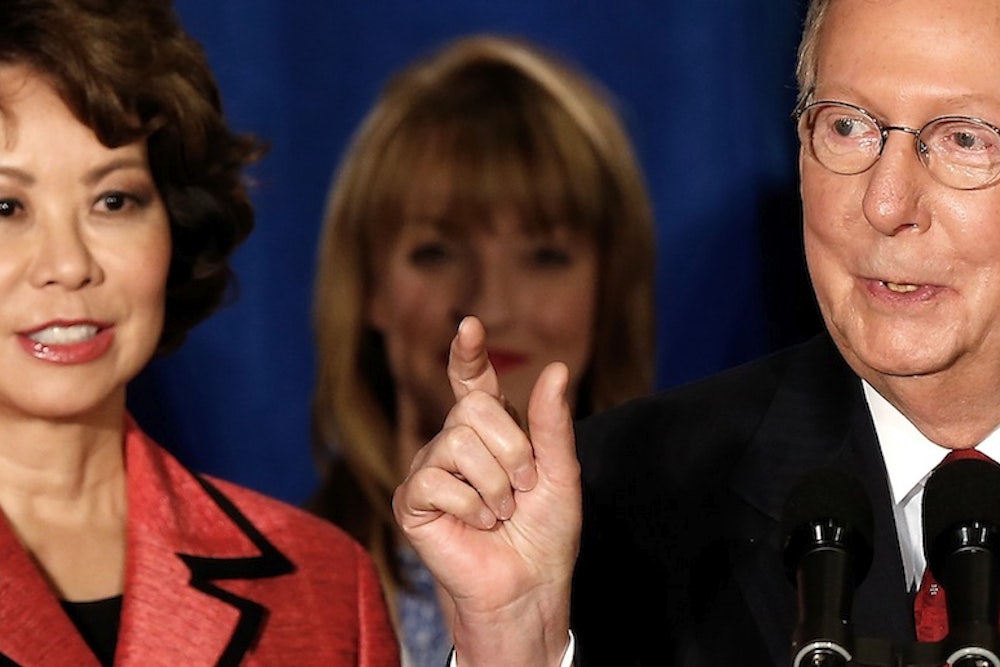Glenn Kessler, who runs The Washington Post's Fact Checker site, has concluded that Mitch McConnell has "accepted the Medicaid" expansion, which would be a bombshell if it were true. The Post's Greg Sargent lends credence to Kessler's interpretation.
But they're basing their conclusion on a statement from McConnell's campaign manager that pretty clearly suggests the opposite—that McConnell wants to kick the vast majority of new Medicaid beneficiaries off the rolls.
To wit: “Medicaid existed before Obamacare and will exist if we are able to repeal it. Obamacare loosened eligibility requirements for Medicaid recipients, and in the process, helped find many who were already eligible but not enrolled. These people would remain eligible even after a repeal. The federal government does allow states flexibility in setting requirements and Kentucky could be able to keep many of the newly enrolled in the program if we decided to.”
I added both emphases, highlighting two different parts of the same answer. One is conclusive, the next is parseable but incredibly evasive.
The first is a reference to what health policy experts call the "woodwork effect." In addition to creating millions of newly eligible Medicaid beneficiaries, the Affordable Care Act drew a large number of previously-eligible beneficiaries out of the woodwork and added them to the rolls. Benton says McConnell will graciously allow them to keep the insurance to which they were entitled before Obamacare passed. They constitute a tiny portion of the state's new Medicaid beneficiaries.
The second is premised on the fact that states can in theory increase their Medicaid-eligible populations on their own. Benton's saying that once the expansion is wiped off the books, the state of Kentucky could essentially recreate it if it wanted to. McConnell won't say if he'd urge Kentucky to recreate it. Just that it would be within Kentucky's power to do so. Kentucky could also create single payer if it wanted. The problem, obviously, is that once Obamacare is repealed, the federal funds it dedicates to expanding Medicaid will disappear as well. Kentucky would be on the hook for much, much more of the cost. Charles Gaba pegs it at over half a billion dollars a year. I can't claim to have much insight into Kentucky's budget, but suffice it to say, it would be a huge disincentive to unilaterally expanding Medicaid, even if it were theoretically possible.
Which is to say, McConnell's first step is to kick almost every new Kentucky Medicaid beneficiary out of the system, and his second step is to leave it up to Kentucky's legislature and Democratic governor to determine if the state wants, and can afford, to pull them back in.
Kessler says the McConnell campaign "did not dispute my conclusion" that McConnell has "accepted the Medicaid expansion."
@ThePlumLineGS @charles_gaba @brianbeutler I don't believe the answer was woodworker only. McConnell campaign did not dispute my conclusion.
— Glenn Kessler (@GlennKesslerWP) May 29, 2014But all that proves is that McConnell is happy to have this impression lingering out there because his actual position—much like his position on Kynect—is politically toxic.
